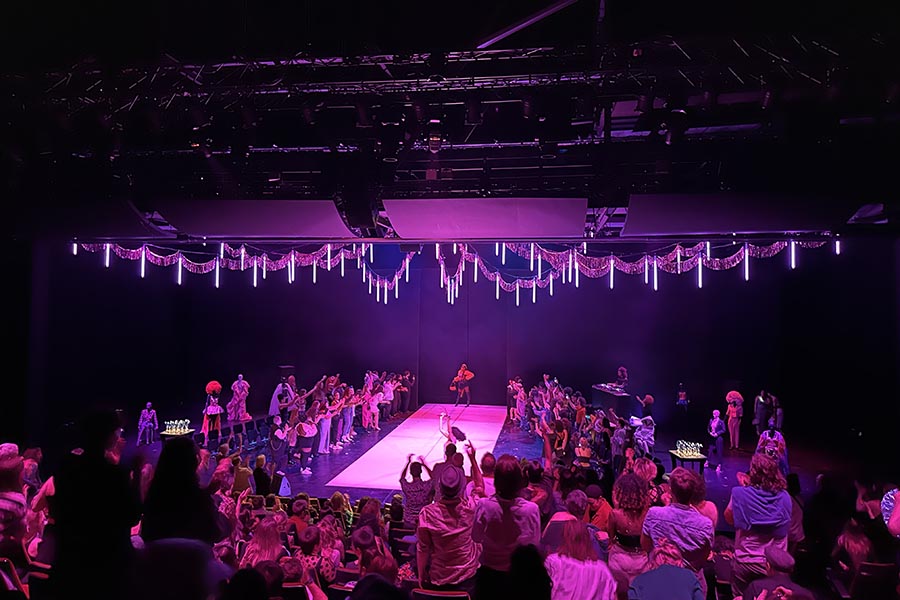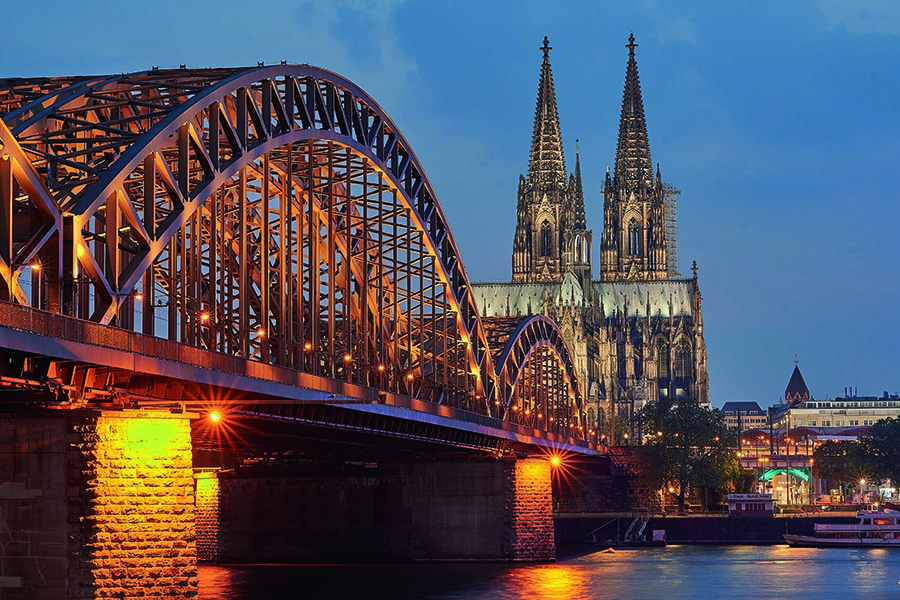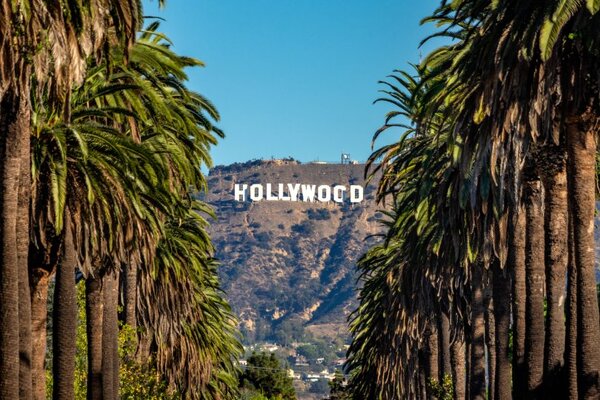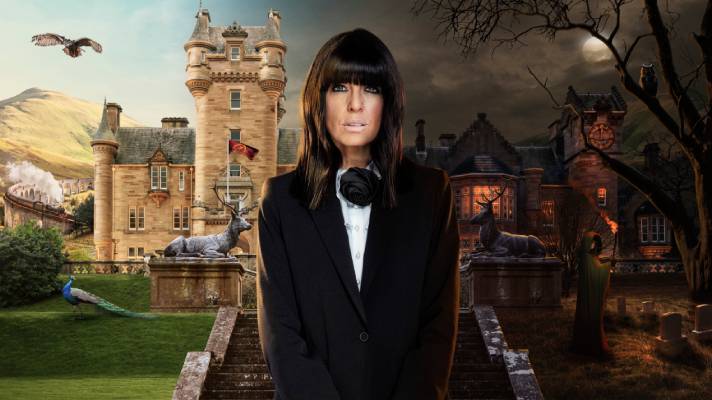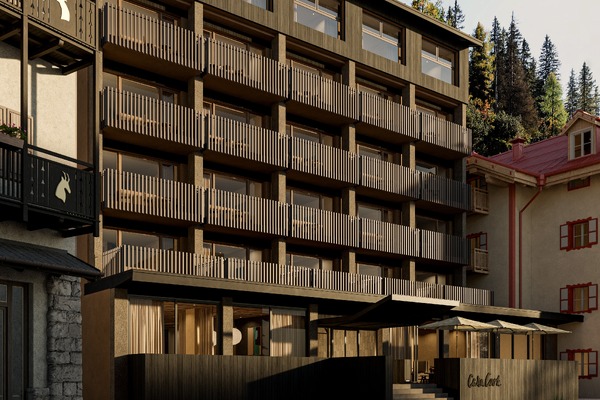Why this German city is the party capital of Europe
Cologne’s Pride, one of the biggest in Europe, reaches its flamboyant conclusion with Christopher Street Day this weekend while the Rhine city is a beacon of acceptance for LGBTQ+ travellers and easily reached by rail

It’s 10.30 am and I’m being educated by historian Till Busse on the morality of sex in the Middle Ages outside Cologne Cathedral. Essentially, anything outside of the missionary position was deemed sodomy and sex intended for pleasure was out of the question. At least according to influential thinkers at the time, Albertus Magnus and Thomas Aquinas.
This is the beginning of an LGBTQ+ walking tour of Cologne and it’s important to start right at the very beginning, when sex was first written about in this city, at the building that is one of its defining characteristics. Indeed, standing in the shadow of Europe’s second tallest church, it’s easy to imagine how the combined dominance of the building and the clergy’s ‘sex is sin’ mindset would dominate the discourse for ensuing centuries. That is, until attitudes became more liberal after Cologne and the Rhineland were occupied by the French in 1794.
It’s a long way to come for a city that now hosts Europe’s largest Pride festival, with last year’s event attracting 1.4 million visitors. And the city is soon to become more accessible, especially to those travelling from London, as Cologne is one of Eurostar’s new connecting destinations that agents will be able to sell once its merger with Thalys reaches the next phase later this year. With a short transfer in Brussels that has me waiting just shy of an hour (ample time to find the next platform and grab a cup of tea), I exchange the blue of the Eurostar seats for the plush red of Thalys and it is a swift two hours onwards to Cologne, the Cathedral greeting me upon exiting the station.
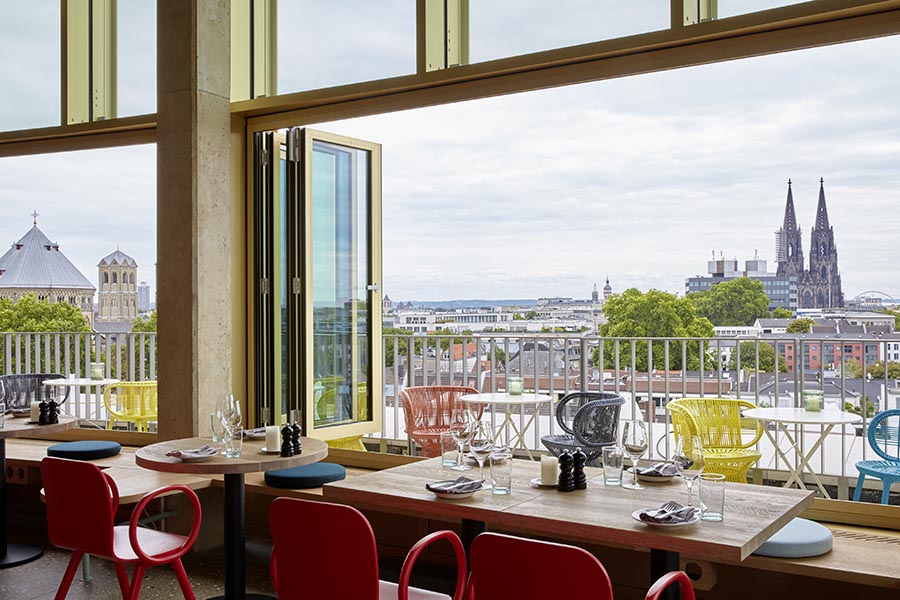
I judge a city break on how walkable a city is and I can confirm that Cologne meets the criteria. My hotel, 25hours Hotel The Circle Cologne, is a 15-minute stroll from the station, located on a quiet residential street but still in the heart of what this city has to offer. Apart from the hotel’s very trendy retro design (it was a former Gerling insurance company), it houses the restaurant NENI and Monkey Bar, both located on either end of the hotel’s rooftop and offering gorgeous views of Cologne Cathedral.
The former in particular is not to be missed for its delicious Middle Eastern cuisine and certainly one to recommend to clients. They will not be disappointed by the sharing platters filled with baba ganoush, falafel, mushroom shawarma, lamb chops and baked fish in tomato sauce. Breakfast is an equally delightful affair, more so when taken on the balcony overlooking the city, the bells of the cathedral vibrating through the air.
As Busse guides me past the Museum Ludwig to the River Rhine, via the statue of Emperor Wilhelm II (about whom journalist and critic Maximilian Harden had published allegations about homosexual relationships at his court), it’s clear that Cologne has an extensive LGBTQ+ history. Just beyond the statue, next to the Hohenzollern Bridge, is the memorial to gay and lesbian victims of Nazism, the pink triangle mirroring the badge that identified them during the war. The site was chosen for its historical significance: traditionally the bridge was a popular meeting place for gay men who wanted to have anonymous sex.
Walking around the city later by myself, it’s not an obvious choice for LGBTQ+ travel. The streets are tame, many families mill around, there’s a very old and settled character in the city’s bones that somehow seems at odds with other cities that are more obvious LGBTQ+ destinations. Yet one in ten people here identify as lesbian, gay, bisexual, transgender or intersexual, which skews significantly higher than the national average at just under seven per cent.
Popular gay bars are concentrated in the city’s Old Town (U: Heumarkt) which was historically a cruising area, and caters to an older crowd, while younger visitors will want to head west for bars and clubs clustered around Rudolfplatz-Schaafenstrasse.
However, it’s later when I go to a drag ball at the Schaulspiel Koln theatre in the Cologne-Mülheim district that I feel what one would expect from a queer-friendly destination – a certain edginess and lively nightlife with an inclusive crowd that ranges from early twenties to seventies. As part of the annual Britney X Festival, performers from both Dusseldorf and Cologne take vogue (a highly stylized modern dance form that originated in Harlem, New York) and put their own stamp on it, most noticeably through some ballet movements that have an Eastern European grace. By the end of the night, my notions of Cologne being a city for a more sedate crowd have been overturned. There is definitely an energy in this city, with many people spilling out of the bars on my return to my hotel.
Book it: Eurostar’s lead-in fare starts at £39pp one-way in low season. Thalys starting price between Brussels and Cologne is 16€. There are no immediate plans for pricing to change once Eurostar and Thalys officially become the Eurostar Group from October 2023; eurostar.com/uk-en/trains.
Double rooms at 25hours Hotel The Circle Cologne start from £127 per night, with breakfast extra at £21pp.
25hours-hotels.com/en/hotels/cologne/the-circle
Contact Eurostar via the TTG Travel Suppliers Directory
All aboard the green train
Cologne Pride
As well as eliminating plastic and offering fewer meat options at food stalls, Cologne Pride has signed an agreement to become climate neutral by 2035. Last year the event generated 32,000 million tonnes of C02 emissions over its two-week run; organisers are aiming to get that down to 5,000 million tonnes by 2028. They are also in talks with Mercedez-Benz about deploying electric trucks for the parade and next year they hope to be able to offer discounted train travel in Germany specifically for Pride.
Eurostar
A passenger's carbon footprint from one Eurostar journey is already on average 90% less than the equivalent flight and the train operator plans to achieve 100% reliance on green energy by 2030. Hydration stations and water taps installed in departures and business lounges have eliminated 800k water bottles annually. while plastic bottles of sparkling water have been replaced with 100% recyclable aluminium cans. Plastic cutlery has been replaced with wooden alternatives and catering partnerships focus on locally sourced, seasonal offerings and reducing food waste.
